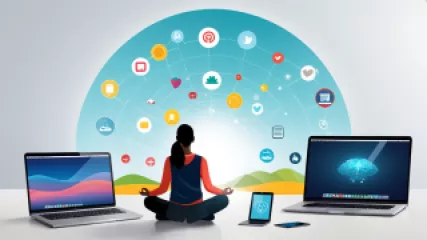Overcoming the Cycle of Self-Sabotage: A Personal Journey
il y a 1 an
Comprendre l’auto-sabotage
How to Overcome Self-Sabotage: A Step-by-Step Guide
il y a 1 an
Comprendre l’auto-sabotage
10 Best Online Resources for Understanding Moods
il y a 1 an
Comprendre les humeurs
How Can Cognitive Behavioral Therapy Help with Personal Growth?
il y a 1 an
Philosophie et psychologie
A Cognitive Behavioral Approach to Understanding and Managing Moods
il y a 1 an
Comprendre les humeurs
Unlocking Mental Wellness: An Interview with a Mental Health App Developer
il y a 1 an
Applications de santé mentale
10 Proven Self-Help Tips to Manage Depression
il y a 1 an
Conseils d’auto-assistance pour la dépression
The Ultimate Guide to Understanding and Overcoming Self-Sabotage
il y a 1 an
Comprendre l’auto-sabotage
Conquering the Fear of Change: An Interview with a Life Coach
il y a 1 an
Surmonter la peur du changement
Exploring the Psychology of Success: A Research Summary
il y a 1 an
Psychologie du succès
7 Lessons from Books and Movies to Improve Your Mental Health App Experience
il y a 1 an
Applications de santé mentale
Boosting Emotional Intelligence: A Step-by-Step Guide
il y a 1 an
Bases de l’intelligence émotionnelle
10 Powerful Strategies to Overcome Self-Sabotage
il y a 1 an
Comprendre l’auto-sabotage
10 Effective Ways to Help Kids Cope with Anger
il y a 1 an
Gérer la colère chez les enfants
Embracing Change: My Personal Journey to Overcome the Fear of Uncertainty
il y a 1 an
Surmonter la peur du changement















